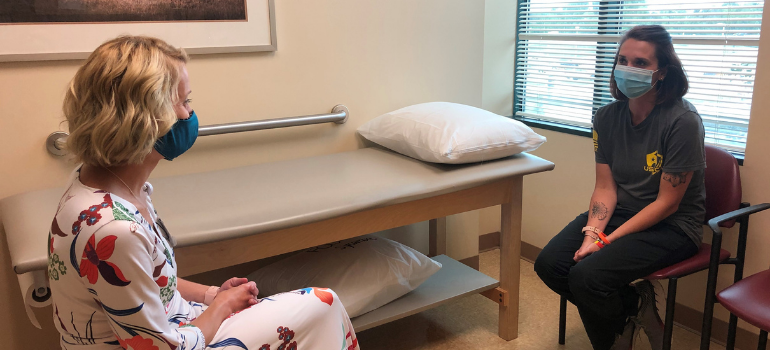Orthopedic Care
Want to learn more about this at Kettering Health?
For some women, it’s the feeling of dread that comes with stepping away from responsibilities. For others, it’s the idea that maybe the pain isn’t bad enough. Whatever the reason, many women are putting off joint replacement surgery or avoiding it altogether.
If you’re experiencing joint pain, don’t ignore it, urges Dr. Elizabeth Dulaney-Cripe, an orthopedic surgeon at Kettering Health.
Joints replacement surgery comes with the promise of improvement to your life, but waiting may mean you struggle to receive all of the benefits of the procedure.
“Joint replacement surgery provides pain relief and improves function,” says Dulaney-Cripe. “If you wait, you can get contractures (tightening of tissues), and regaining full motion once you have contractures is more difficult.”
How do I know if I need surgery?
Joint pain, especially pain that limits your daily activity, is a sign that you need to see your doctor. Whether you notice it’s hard to get in and out of a car, put shoes and socks on, or get up from a seated position, it’s time to make an appointment.
Your doctor will most likely get weight-bearing X-rays, or X-rays where you’re standing, to get a good picture of any arthritis where you’re having pain. Your doctor will help you figure out if joint replacement is best for you, and in some cases, you may find other treatment options that don’t require surgery.
“I think the biggest thing I notice when I talk to patients is they feel if they come to see a physician, their only option for arthritis is knee replacement. So they really put it off and live with the pain,” Dr. Dulaney-Cripe says. “But if they talk to their primary care provider or us, there are lots of options with bracing, injections, and nerve blocks.”
Getting back to your life
If you discover joint replacement surgery is the best option for you, the first question you may have is when you’ll be back to normal.
“Everyone is very different,” Dr. Dulaney-Cripe says. “Other medical conditions, how physically active and strong you are, and your determination to get better all play a role.”
In the most general timeline, Dr. Dulaney-Cripe sees patients using a walker for 2-4 weeks and getting back to normal activities around 6-10 weeks. But recovery is a very personal thing, so women should know that everyone’s journey will look a little different.
Is it worth it?
When it comes down to it, are the weeks of recovery worth it?
“Joint replacement surgery improves your mobility, decreases your pain, and gives you back the ability to do things you had stopped doing,” says Dulaney-Cripe.
So, while you’ll be out of commission for a bit, once recovered, you’ll be able to become more physically active and live without discomfort.










